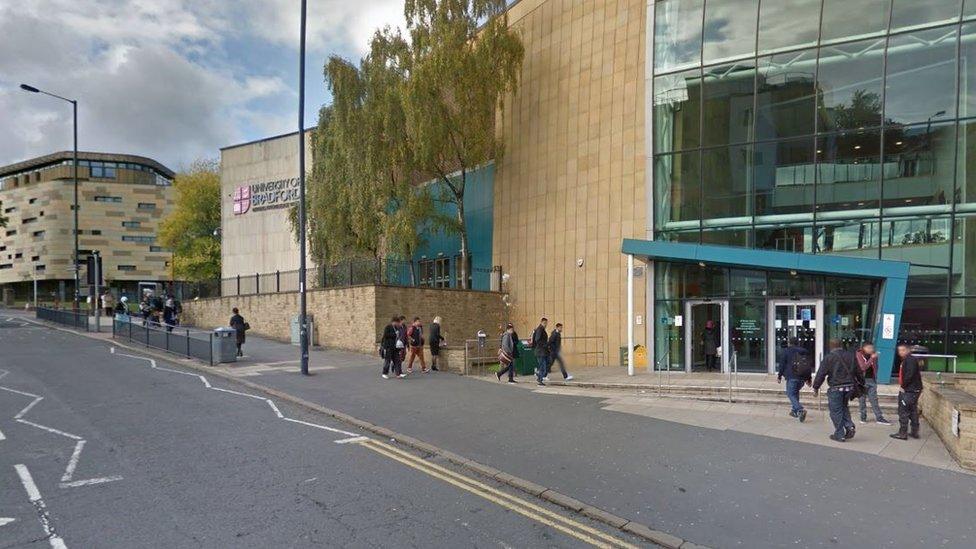Yorkshire and Lincolnshire unis' £107m bill for staff redundancies
- Published
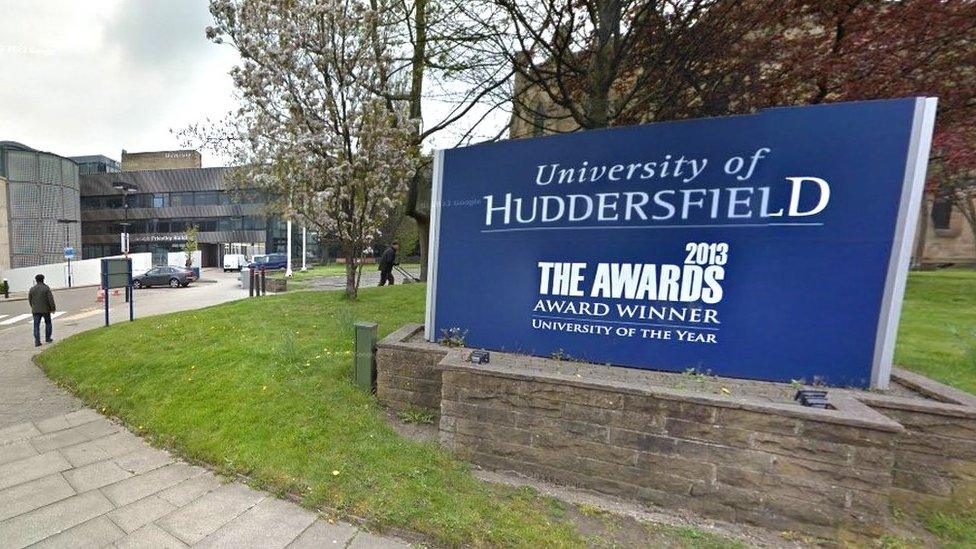
The University of Huddersfield recently announced plans to axe one in 10 of its total workforce
Universities in Yorkshire and Lincolnshire have spent over £100m making more than 6,000 staff redundant since 2015, the BBC has found.
Redundancy programmes were implemented as universities struggled to meet rising costs, while tuition fees for domestic students were frozen in 2012.
The University and College Union (UCU) said it was a "perfect storm".
The Conservatives and Labour are yet to set out their plans for funding higher education in their election campaigns.
BBC News has analysed the published accounts of Yorkshire and Lincolnshire's 10 mainstream universities.
The accounts detailed how since 2015, 6,006 staff members had been made redundant as part of different savings programmes run by each institution.
Universities in the region, including the universities of Huddersfield and Bradford and York St John University, had paid out a total of £107m to the staff they had laid off, data showed.

Megan Horner, a Huddersfield University graduate, says many young people will "regret" going to university
Announcing job cuts earlier this week, York St John University said it was experiencing "financial challenges which are common across the sector" due to a predicted drop in international student enrolments as a result of changes to the visa system.
Last month, the University of Bradford announced it needed to save £10m in the next financial year as it opened a voluntary redundancy scheme for staff.
Meanwhile, the University of Huddersfield recently announced plans to axe one in 10 of its total current workforce as part of "a transformational change programme".
'Long-running problem'
Three quarters of funding for universities comes from the tuition fees students pay, external.
English student fees are capped at £9,000 a year, with some universities relying on overseas students - who can pay more than £25,000 a year - to cover the cost of running some courses.
In January, the government introduced tougher rules for international students, external which it said aimed to help "slash migration".
Julie Kelly, regional organiser for the UCU in Yorkshire & The Humber, said universities had been "hit by the loss of international students".
She added that universities faced a "perfect storm" and it was "a long-running problem".
"We've seen some institutions borrow heavily to build fancy new buildings when money was cheap and they are now struggling with the repayments," she said.
"The impact on staff is huge. Our members are worrying continually about whether the next round of cuts is going to affect them."

Khal Boterill, a PhD student at Huddersfield University, says there has been "no satisfactory explanation" for the job cuts
Khal Boterill, a second year PhD student at the University of Huddersfield, said: "When I've walked to university each morning, I've had no idea what I'm going to find.
"We've seen staff just leave mid-way through a course and that's been really damaging to my studies.
"I made a career choice to come to this university and I've had no satisfactory explanation why these cuts are being implemented."
Meanwhile, Megan Horner, who graduated from the University of Huddersfield this year, said while she had hoped to return there to study for her Master's degree, she had instead had to seek employment.
"I do feel let down by the system and by the fact that we're encouraged to go to university and pay extortionate amounts of money for a degree we're not even guaranteed is going to be the same at the end," she said.
The University of Huddersfield told the BBC that the job cuts were a "proactive effort to secure a dynamic and sustainable future" during a "financial crisis" in higher education.

Up to 30 jobs are under threat at York St John University
It is expected that the Conservatives and Labour will lay out how they plan to fund higher education when they publish their general election manifestos next month.
In May, Prime Minister Rishi Sunak promised to scrap some university courses in England to help fund 100,000 apprenticeships.
The Conservative party said it would replace the "worst-performing" degrees that it considered a "rip-off" because of high dropout rates and "poor" job prospects.
At the last election in 2019, under then-leader Jeremy Corbyn, Labour promised to abolish tuition fees for students in England.
However, last year, Labour's current leader Sir Keir Starmer ruled out scrapping fees, but he said the party was looking at alternative options for funding.

Follow BBC Yorkshire on Facebook, external, Twitter, external and Instagram, external. Send your story ideas to yorkslincs.news@bbc.co.uk, external.
- Published18 April 2024

- Published15 April 2024
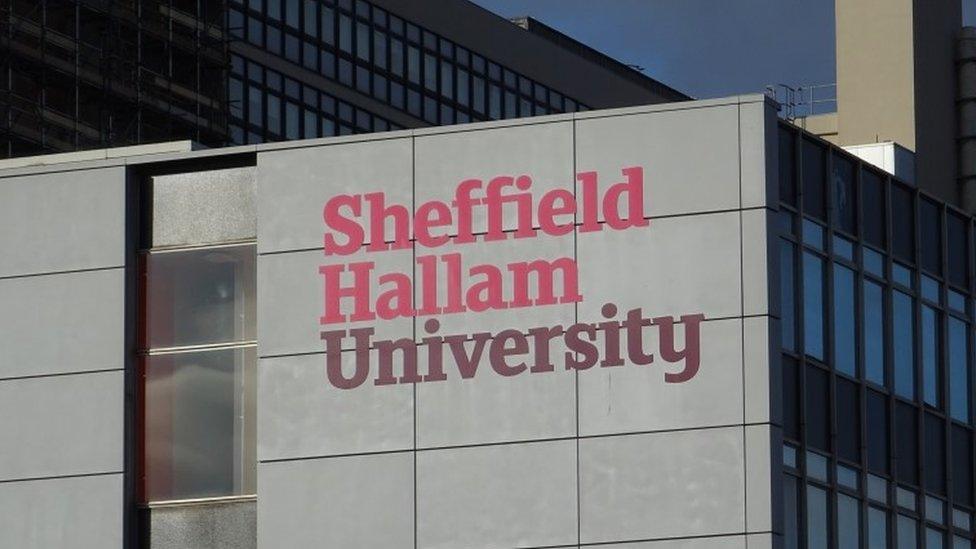
- Published9 March 2024

- Published18 January 2024
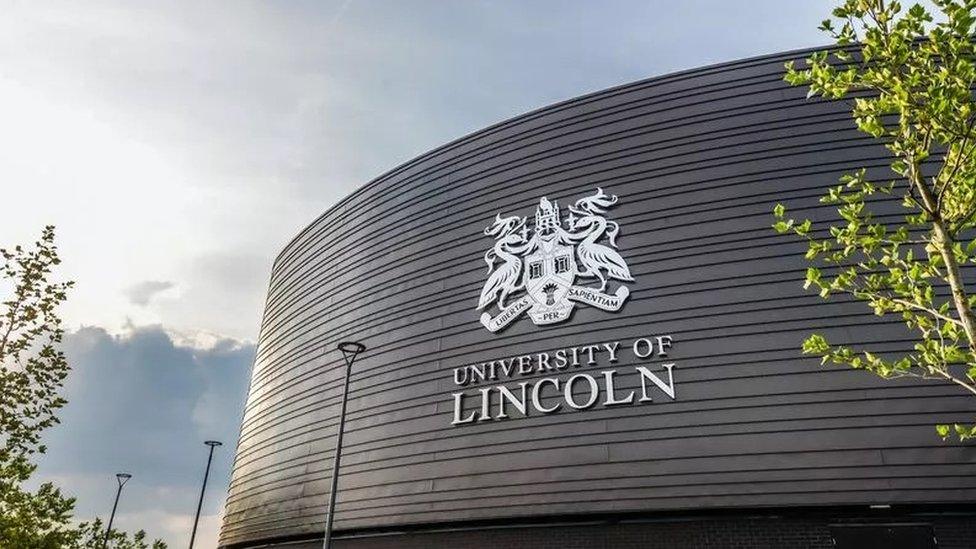
- Published26 July 2023
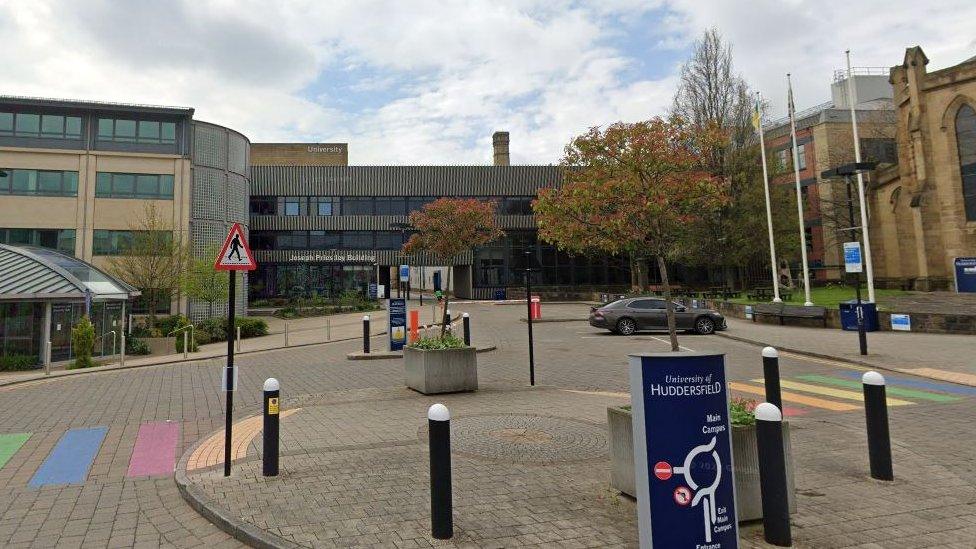
- Published13 August 2018
